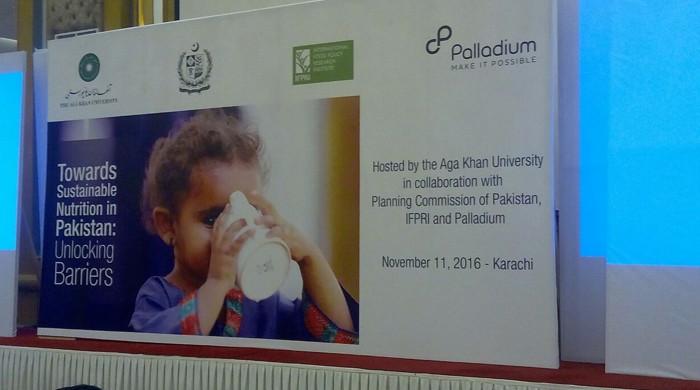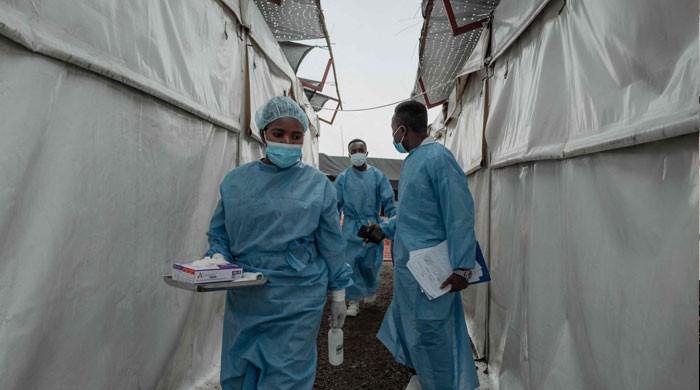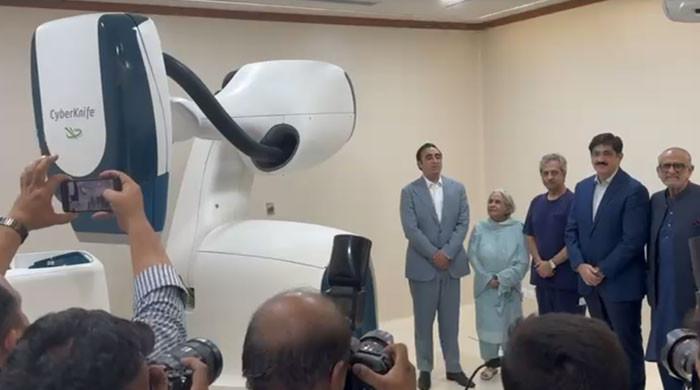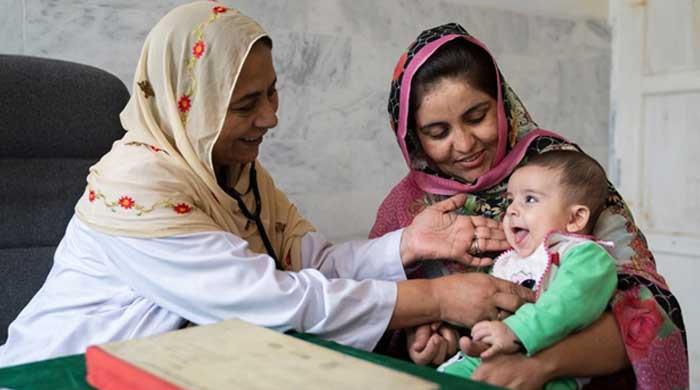Policy change required to tackle malnutrition threat in Pakistan
KARACHI: Malnutrition has a lifelong effect on Pakistan’s children and adults along with severe consequences for the economy, said experts at the launch of the Global Nutrition...
November 11, 2016

KARACHI: Malnutrition has a lifelong effect on Pakistan’s children and adults along with severe consequences for the economy, said experts at the launch of the Global Nutrition Report 2016 at a local hotel here.
While Talking to Geo News Founding Director of the Aga Khan University’s Centre of Excellence in Women and Child Health and a member of the Independent Expert Group which produced the Global Nutrition Report 2016, Professor Zulfiqar Bhutta said that malnutrition is a condition that directly affects one in three people. The economic consequences represent losses of 11 per cent of gross domestic product (GDP) every year in Africa and Asia, whereas preventing malnutrition delivers $16 in returns on investment for every $1 spent.
Experts from United Nation’s Food and Agriculture Organization, World Bank official, International Centre for Diarrhoeal Disease Research representative, Nutrition Support Programs and other stake holders agreed on the threat of a malnourished, underachieving generation of Pakistanis calls for major changes in public policy.
Pakistan has committed to ending malnutrition by 2030 in line with the global Sustainable Development Goal 2.
Professor Zulfiqar Bhutta added that girls, who are malnourished in their early years, are more likely to give birth to underweight children, which means that these health problems have a multi-generational impact. “This is why stakeholders need to focus on early, high-impact interventions and preventive strategies.”
Speakers at the event noted that many factors are contributing to Pakistan’s nutrition crisis which calls for a multi-sectoral approach to the problem.
If political crises are solved and real stake holders wanted a change in our society and really want to reduce malnutrition and infant mortality rate than they have to work on it now otherwise the situation would get worse, Professor Bhutta stressed











